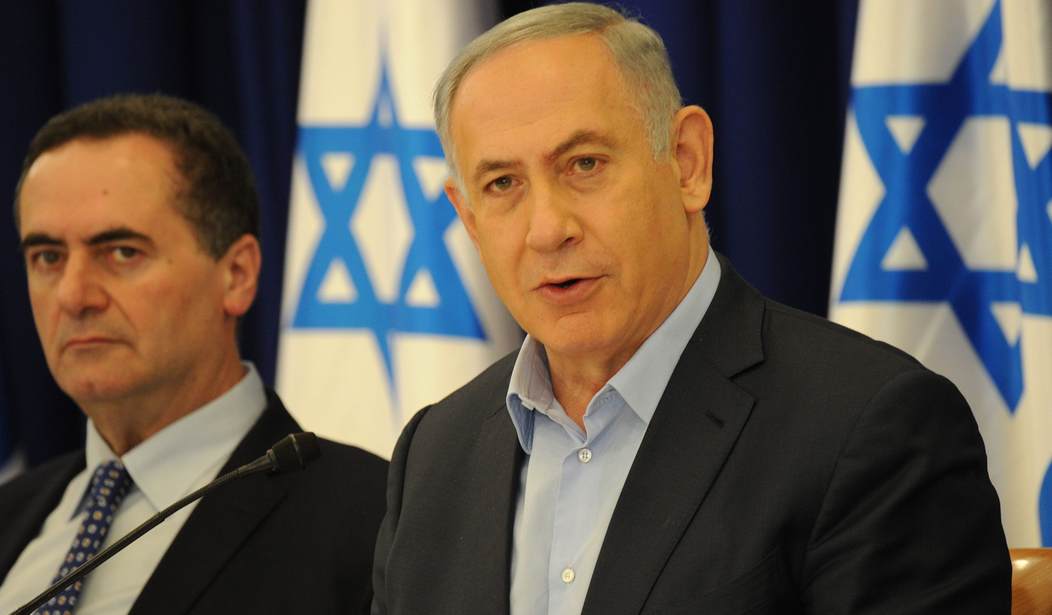Israeli Minister of National Infrastructures and Political-Security Cabinet member Yoav Galant said on Friday that Israel will “take off the gloves” in its next confrontation with Iran.
Israeli warplanes attacked several Iranian targets in Syria last week after Iran sent a drone over Israeli territory.
Galant said that it is Israel’s intention to “dismantle the axis of evil — Syria, Iran, and Hezballah.”
“Anyone who’s asking how big is the power of the State of Israel can read into that experience,” the minister said, suggesting: “I think the Syrians understand that it’s not worth their while.”
Galant noted that “today the Iranians are using Syrian land, often against the will of the Syrians, in order to gain assets for themselves. The Iranians want to take over the Middle East, establish an Iranian army in Syria, open a front on the Golan Heights – Hezbollah 2 – and use Syria as a springboard to deliver into Lebanon weapons that violate the balance of power.”
The minister promised, “We will not allow any of these things. This is true politically, and you can see the efforts of the government, especially the Prime Minister, in this area.”
Israel striking Syrian territory is not new. The difference last time was that they also attacked Iranian targets. Iran is busy building up assets in Syria, including advanced anti-aircraft systems and possibly precision-guided missiles. Israel cannot tolerate this. Hezbollah already has 150,000 missiles aimed at Israel’s cities, most of them small, short-range systems. The addition of precision-guided missiles would represent a massive and unacceptable threat that Israel would have to eliminate.
Israel has largely attempted to avoid getting entangled in the Syrian civil war, but both Iran and Hezbollah’s presence in Syria and Hezbollah’s acquisition of advanced weaponry, potentially including a nascent precision strike capability, present a new and significant threat. Indeed, Israel estimates Hezbollah has up to 150,000 rockets and missiles ; a precision targeting capability would be a game changer, allowing Hezbollah to hold vital Israeli infrastructure and population centers at risk with far fewer weapons due to increased accuracy.
Of note, during this latest clash, Israel temporarily closed Ben Gurion Airport, its main transportation hub and point of access to the outside world, out of concern about a retaliatory attack.
Likewise, Iran and Hezbollah are not looking to escalate in the near term—both are still focused on the conflict in Syria. However, Iran’s willingness to penetrate Israeli airspace with a UAV, build facilities in Syria and continue attempting to transfer advanced weaponry to Hezbollah in Lebanon, despite Israeli interdiction efforts, is highly provocative and increases the risk of miscalculation and war.
Israel has repeatedly demonstrated it will take military action against this threat.
Iran almost certainly doesn’t want a face to face confrontation with Israel. But they may be willing to use Hezbollah to “bleed” the Israelis a bit. And Israel may be willing to take that challenge:
If war breaks out between Israel on the one hand and Iran and Hezbollah on the other, it almost certainly will be far larger in scope and more destructive than the conflict in 2006. Hezbollah has a more capable military with a much larger rocket and long-range missile force that can strike deep into Israeli territory.
For its part, Israel will likely feel compelled to demonstrate a decisive victory on the battlefield, unlike in 2006, and try to eliminate Hezbollah’s military capabilities as fully as possible. Hezbollah strikes against key Israeli infrastructure and population centers would likely be met with a ferocious air campaign targeting Lebanese vital infrastructure, along with a wide range of Hezbollah targets. Any Israeli operation would almost certainly include a robust land campaign as well.
Iran is using a “boiling frog” approach to building up its military forces in Syria. They hope it will be so gradual that it won’t give Israel a clear opening or justification for attack.
I’m sure Israel has its own red lines in Syria, which means that approach won’t work. As for Israel’s thinking, they will almost certainly choose to attack Iran in Syria before Iranian plans to build a significant presence in Syria come to fruition.
This doesn’t make war inevitable, just more likely. And with the ever present danger of mistakes and miscalculations on both sides, it’s getting harder to see how some kind of conflict can be avoided much longer.










Join the conversation as a VIP Member